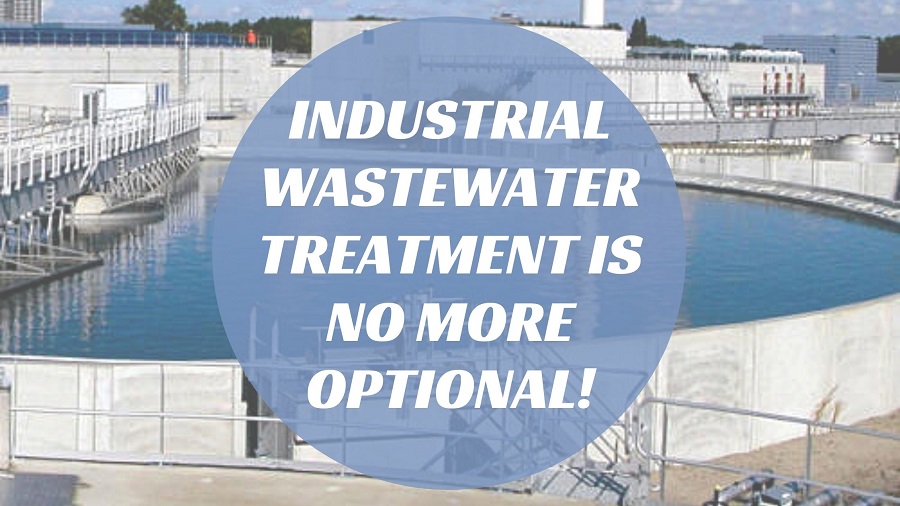Industrial Waste Water Treatment-- Eco-Friendly Solutions for Water Recycling
Industrial Waste Water Treatment-- Eco-Friendly Solutions for Water Recycling
Blog Article
Developments and Breakthroughs in Industrial Waste Water Treatment Technologies
The landscape of commercial wastewater therapy is undertaking a transformative change, driven by innovations that enhance both efficiency and sustainability. As regulatory requirements develop, the assimilation of AI and maker discovering right into wastewater administration systems promises to simplify operations and make sure compliance.
Review of Drainage Treatment Technologies
Wastewater therapy innovations include a variety of approaches created to eliminate pollutants from industrial effluents before their launch right into the atmosphere. These innovations are crucial for maintaining environmental balance and guaranteeing conformity with ecological policies. The main groups of wastewater therapy consist of physical, chemical, and organic methods, each serving distinct objectives based on the nature of the impurities present.

Organic therapy approaches employ microorganisms to deteriorate organic matter, making them especially effective for organic-rich effluents. Strategies like turned on sludge and biofilm reactors harness the all-natural destruction capacities of germs, causing substantial reductions in biochemical oxygen need (BOD)
Advanced Purification Techniques
Advanced filtration strategies represent a crucial evolution in the world of commercial wastewater treatment, enhancing the efficiency of impurity elimination procedures. Industrial Waste Water Treatment. These approaches encompass a variety of innovations, including microfiltration, ultrafiltration, nanofiltration, and turn around osmosis, which give sequential obstacles for different bit sizes and chemical frameworks
Microfiltration and ultrafiltration utilize membrane systems to remove suspended solids, bacteria, and larger organic particles, improving the quality of effluent previous to more treatment. Nanofiltration links the void between ultrafiltration and reverse osmosis, successfully removing organic compounds and divalent ions, hence decreasing the tons on downstream processes.
Reverse osmosis provides the greatest level of purification by allowing just water and little molecules to travel through its semi-permeable membranes, making it suitable for redeeming high-quality water from industrial effluents. Recent innovations in membrane layer innovation, including the advancement of even more fouling-resistant and sturdy products, have actually considerably boosted functional effectiveness and minimized expenses.
Integrating these innovative filtering techniques not just boosts the overall treatment process however likewise adds to sustainability efforts by allowing water reuse and source recovery in commercial setups. (Industrial Waste Water Treatment)
Biological Therapy Technologies

Moreover, the development of crafted biological systems, such as membrane bioreactors (MBRs), integrates organic treatment with advanced membrane filtration. This assimilation permits greater effluent quality and go to these guys decreased impact, making it ideal for space-constrained commercial centers. Advancements in genetically engineered microbes have actually additionally arised, enhancing the biodegradation of specific contaminants, such as drugs and hefty steels, that are traditionally testing to get rid of.
Furthermore, the execution of bioaugmentation techniques, where valuable microorganisms are introduced to boost the existing biological therapy processes, has revealed appealing outcomes in enhancing therapy performance. These technologies jointly symbolize a fad towards more sustainable and efficient organic treatment methodologies that can adapt to the evolving intricacies of commercial wastewater streams. As industries remain to prioritize ecological compliance, these biological advancements will certainly play a critical function in wastewater administration.

Resource Recuperation Approaches
In industrial setups, the integration of resource recuperation methods has come to be increasingly crucial for enhancing sustainability and reducing waste. These methods concentrate on removing useful materials and energy from wastewater streams, thereby changing possible contaminants right into reusable sources.
One popular approach is vitamins and mineral recuperation, where nitrogen and phosphorus, commonly present over in wastewater, are caught and exchanged fertilizers. This not just reduces environmental effects yet likewise provides a circular economic climate remedy for agricultural applications. Furthermore, innovations such as anaerobic digestion allow for the conversion of organic waste into biogas, a sustainable power resource that can counter nonrenewable fuel source use in industrial procedures.
Moreover, advanced filtering and membrane innovations promote the recuperation of industrial by-products such as metals and salts. These recouped products can be rehabilitated right into manufacturing processes, lowering the demand for virgin resources.
Future Trends in Drainage Management
As sectors significantly focus on sustainability, the future of wastewater monitoring is set to undergo substantial improvements. Technical developments, such as synthetic reference intelligence and artificial intelligence, will anonymous certainly enable a lot more efficient tracking and management of wastewater systems. These technologies can predict maintenance requirements, maximize therapy processes, and boost decision-making, inevitably decreasing operational costs and ecological influence.
In addition, the combination of circular economy principles will play an important duty in wastewater monitoring. Industries are anticipated to shift in the direction of systems that not only treat wastewater but likewise recoup valuable resources, such as nutrients, water, and power. This transition will minimize waste and promote the reuse of products, straightening with worldwide sustainability objectives.
Arising treatment strategies, such as membrane bioreactors and progressed oxidation procedures, will better enhance the efficiency of wastewater treatment, enabling higher high quality effluents ideal for reuse. Additionally, governing structures are most likely to progress, emphasizing more stringent standards for wastewater discharge and encouraging industries to adopt innovative therapy services.
Final Thought
In verdict, the evolution of commercial wastewater therapy modern technologies demonstrates a considerable change towards enhanced effectiveness and sustainability (Industrial Waste Water Treatment). Technologies in innovative purification techniques, organic treatments, and resource healing techniques highlight the industry's dedication to ecological stewardship.
The landscape of industrial wastewater therapy is undertaking a transformative shift, driven by technologies that improve both performance and sustainability.Wastewater treatment innovations incorporate a variety of approaches created to get rid of contaminants from industrial effluents prior to their release right into the environment.Taking advantage of the power of biological processes has actually led to significant developments in the treatment of commercial wastewater.Additionally, the application of bioaugmentation strategies, where beneficial microorganisms are introduced to boost the existing organic treatment processes, has actually revealed encouraging results in improving treatment efficiency. These advancements jointly signify a fad in the direction of more efficient and sustainable biological treatment approaches that can adjust to the advancing intricacies of commercial wastewater streams.
Report this page